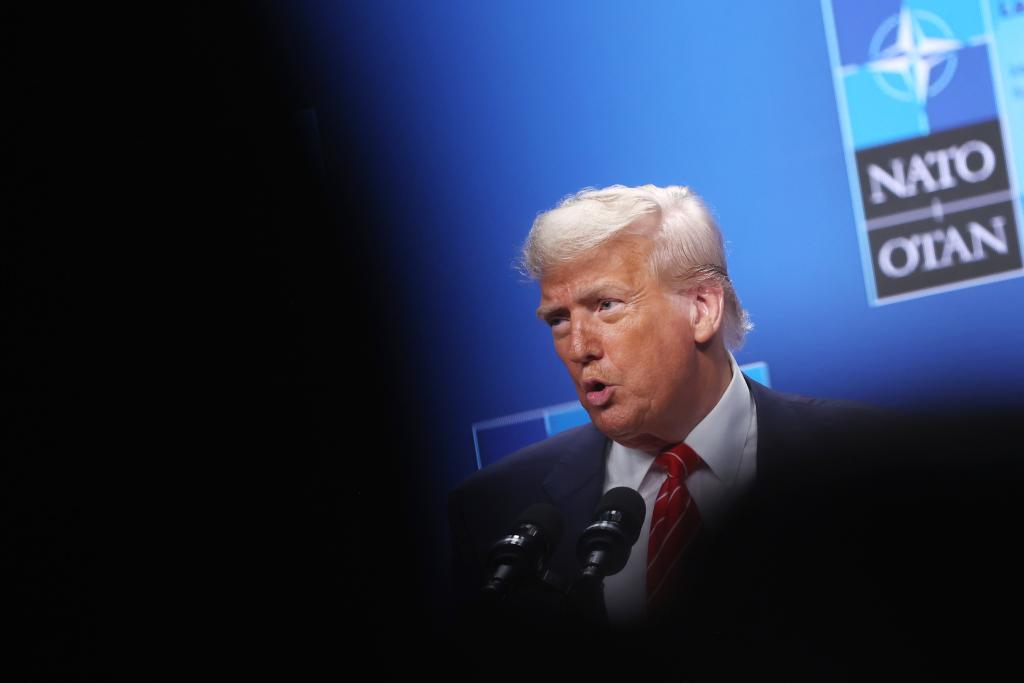TMTPOST -- More signs on Thursday suggested U.S. Donald Trump could extend his July 9 deadline for higher reciprocal tariffs.

Credit:Xinhua News Agency
“The deadline is not critical,” White Press press secretary Karoline Leavitt said in a press briefing. She told reporters that Trump “can simply provide these countries with the deal if they refuse to make us one by the deadline," and that means the president can pick “a reciprocal tariff rate that he believes is advantageous for the United States.”
"Perhaps it could be extended but that’s a decision for the president,” Leavitt responded when asked for clarity in the briefing about the July 9 deadline.
In an interview released earlier Thursday, the White House Council of Economic Advisers chairman Stephen Miran signaled the July 9 deadline is not so fixed date that can not be adjusted if major U.S. trading partners want to push for a trade deal in good faith.
"My expectation would be that for countries that are negotiating in good faith and making progress, that rolling back the deadline makes sense," Miran said. "I mean, you don't blow up a deal that's that's in process and making really good faith, sincere, authentic progress by dropping a tariff bomb in it."
Miran said the trade deal may not result in the aggregate tariff rate much lower than the current 10% baseline tariff, but the levies individual countries facing may be various depending on their offers. The countries making aggressive concessions may face lower tariffs below the baseline, while those refusing to make such concessions will “have the 'Liberation Day' tariff snap back up on them.”
U.S. Commerce Secretary Howard Lutnick later Thursday told Bloomberg White House will finalize trade deals with 10 major trading partners in the next two week, and Trump could also extend deadlines to allow for more talks.
“Those who have deals will have deals, and everybody else that is negotiating with us, they’ll get a response from us and then they’ll go into that package,” Lutnick said. “If people want to come back and negotiate further, they’re entitled to, but that tariff rate will be set and off we’ll go.”
Trump announced on April 9 in a post he has authorized a 90-day pause and “a substantially lowered reciprocal tariff” of 10% during this period, both effective immediately. The White House clarified that Trump’s announcement of a 90-day pause on tariffs means that the “tariff level will be brought down to a universal 10% tariff” during that time, while “negotiations are ongoing.”
U.S. Treasury Secretary Scott Bessent earlier this month became the first senior Trump official that has indicated some flexibility for the tariff pause when he testified before the House Ways and Means Committee.

Bessent emphasized throughout the hearing on June 11 that he’s focused on negotiations with the 18 US trading partners who account for 90% of the trade and suggests that regional deals are possible with smaller countries. Questioned about whether the so-called reciprocal tariffs would enter effect when a 90-day pause ends, Bessent responded the Trump administration is “highly likely” to delay tariffs for countries involved in good-faith trade talks.
"It is highly likely that those countries - or trading blocs as is the case with the EU - who are negotiating in good faith, we will roll the date forward to continue the good-faith negotiations," Bessent told House of Representatives. ”If someone is not negotiating, then we will not.”
更多精彩内容,关注钛媒体微信号 (ID:taimeiti),或者下载钛媒体 App
